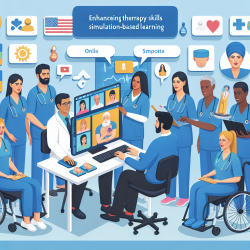As a practitioner working in the educational setting, it’s crucial to stay updated with the latest research to enhance our skills and provide the best care for our students. One such valuable piece of research is the study titled "Comparison of Problematic Behavior According to the Ryouiku Techou Standard," which provides insights into the problematic behaviors of children with mental retardation (MR) and how these behaviors vary with the severity of their condition.
The study assessed 86 mentally retarded children using the Japanese version of the Aberrant Behavior Checklist (ABC-J). These children were categorized into two groups based on the Ryouiku Techou standard, which classifies intellectual disabilities into three stages: A, B1, and B2. The study aimed to investigate how MR influences children's problematic behaviors.
Here are some key findings from the study:
- Stereotypy and Lethargy: The study found significant differences between the groups in terms of stereotypy and lethargy. These behaviors were more prevalent in children with severe MR.
- Other Behaviors: No significant differences were observed between the groups for irritability, hyperactivity, and inappropriate speech.
Implementing These Insights in Practice
As a practitioner, understanding these findings can help you tailor your approach when working with children who have MR. Here are some strategies you can implement:
- Focus on Movement Repertory: Given that stereotypy relates to insufficient movement repertory, incorporating activities that promote varied movements can help reduce this behavior. Consider integrating more dynamic exercises and play-based activities that encourage different types of movements.
- Address Lethargy with Engaging Activities: Since lethargy relates to insufficient activity, try to make physical therapy sessions more engaging. Use games, interactive exercises, and activities that the child finds enjoyable to keep them active and involved.
- Collaborate with Other Professionals: Work closely with occupational therapists, teachers, and caregivers to create a holistic approach to managing these behaviors. Sharing insights and strategies can lead to more effective interventions.
- Personalize Therapy Plans: Each child is unique, and their therapy plan should reflect their specific needs. Use the findings from the study to inform your assessments and tailor your interventions accordingly.
Encouraging Further Research
While this study provides valuable insights, it also highlights the need for further research in this area. As practitioners, we should encourage and participate in research to continue improving our understanding and approaches to managing problematic behaviors in children with MR.
To read the original research paper, please follow this link: Comparison of Problematic Behavior According to the Ryouiku Techou Standard.










